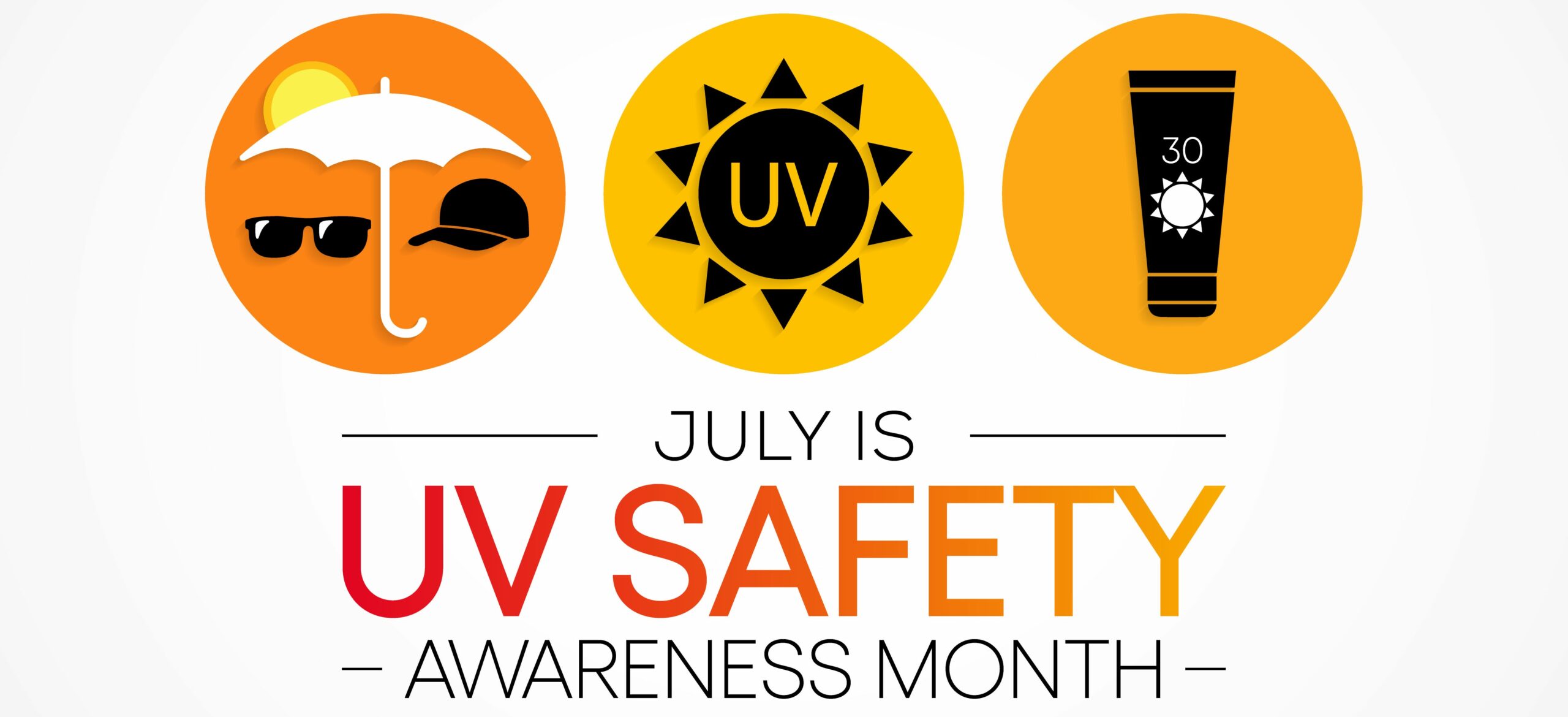In July, we raise awareness that exposure to ultraviolent (UV) rays is the root cause of most skin cancers and encourage the public to take precautions. Wickenburg Community Hospital & Clinics (WCH) is sharing the following educational article in hopes you will better protect yourself from the devastating consequences of UV!
What’s the difference between UVA & UVB rays?
By Heather Alexandar, The University of Texas MD Anderson Cancer Center (https://www.mdanderson.org/publications/focused-on-health/what-s-the-difference-between-uva-and-uvb-rays-.h15-1592991.html)
What is UV radiation?
Sunlight sends a whole spectrum of light down to us here on Earth. Some parts of that spectrum of light are obvious to us. Infrared radiation is what heats us up. Ultraviolet radiation is at the other end of the light spectrum. UV radiation can burn and damage our skin without us ever becoming warm. That’s why it is dangerous even on cloudy days.
What is UVA radiation?
UVA radiation makes up 95% of all the UV rays that make it to the Earth’s surface. UVA penetrates deep into our skin and can even pass through glass. UVA damages your skin, resulting in a tan. It is the primary radiation used in tanning beds. It causes almost all forms of skin aging, including wrinkles. UVA damages the collagen and elastin in the skin and generates free radicals.
What is UVB radiation?
UVB damages skin cells and causes DNA mutations that can eventually lead to melanoma and other types of skin cancer. UVB radiation from the sun also can cause cataracts. Cataracts happen when proteins in your eye lens get damaged. The proteins start to collect pigments that cloud your vision.
How to protect yourself
The best way to protect yourself from UV radiation is to stay out of the sun between 10 a.m. and 4 p.m. when UVB rays are at their highest intensity. It’s important to take care of yourself, even if you are in the shade. UV rays can reflect off surfaces like concrete, water, sand and snow, and still cause significant damage to your skin.
Sunscreen with a 30 sun protection factor (SPF) or higher should be worn any time you are out enjoying the sun.
Robert Ripley, MD, FACS, of WCH, reminds us of another way to protect against sun damage, “Your eyes also need protection from ultraviolet light. UVA and UVB light can damage proteins in the lens of our eyes leading to cataracts. Cataracts make our vision blurry, hazy and less colorful. Eventually, cataracts distort our vision to the point where the lens must be replaced. You can protect your eyes by wearing a wide-brimmed dark hat (dark material is less reflective) and sunglasses that block 99 to 100% of UVA and UVB light.”
 If you are concerned about skin cancer please make an appointment with Dr. Ripley, today by calling 928-668-5506 or submit an appointment request from his page.
If you are concerned about skin cancer please make an appointment with Dr. Ripley, today by calling 928-668-5506 or submit an appointment request from his page.




